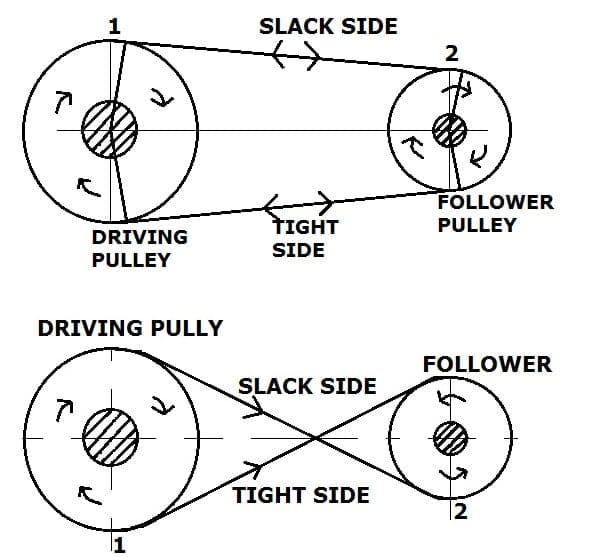

Choosing the right laundry appliances is crucial for a seamless and efficient laundry routine. Laundry appliances are an important investment for any household. These machines, ranging from washing machines to dryers, come in various types, each with its own set of strengths and weaknesses. Understanding the pros and cons of each type is vital for making an informed decision. This article aims to help you navigate the world of laundry appliances, highlighting the benefits and drawbacks of different models to equip you with the knowledge needed to choose wisely.
Top-Load Washing Machines: A Classic Choice
Advantages of Top-Load Washing Machines
Top-load washing machines, a classic design that many people are familiar with, are known for their simplicity and affordability. Their straightforward design makes them relatively easy to use and maintain. They typically have a more direct and powerful wash action, often effectively removing tough stains and dirt from clothes. This traditional style usually requires less upfront investment compared to other models, representing a more accessible option for many. The accessibility and ease of use are key advantages.
Disadvantages of Top-Load Washing Machines
While top-loaders are straightforward, they often use more water and energy during the wash cycle compared to front-loaders. This increased consumption can lead to higher utility bills over time. Their wash action may not be as gentle on delicate fabrics compared to front-loaders, potentially leading to more wear and tear. The overall efficiency, including water and energy consumption, is typically lower in top-load washing machines. Also, the design often lacks features like adjustable water levels for different load sizes.
Considerations for Top-Load Washing Machines
When choosing a top-load model, consider the capacity of the machine to ensure it aligns with your laundry needs. Assess the wash cycles offered to make sure they meet your clothing care requirements. Look into options regarding energy and water efficiency and consider maintenance considerations. Compare costs associated with different models to find the best value for your money.
Front-Load Washing Machines: The Efficient Choice
Advantages of Front-Load Washing Machines
Front-load washing machines, a more modern option, are praised for their energy efficiency and gentler treatment of clothes. Front-loading machines are typically more energy-efficient than top-loaders, reducing your utility bills and lowering your environmental impact. The wash action is often gentler on clothes, maintaining their shape and color for longer periods. They usually use less water than top-loaders, which can be beneficial to those concerned with water conservation. This style typically comes with a more compact design that can fit into smaller spaces.
Disadvantages of Front-Load Washing Machines
Front-load washing machines may be more expensive upfront. They are often seen as higher-end appliances with more features. They can sometimes be more prone to mold and mildew buildup if not properly maintained. The door design is more complex, and it needs to be left slightly ajar to facilitate drying, preventing mold build-up.
Considerations for Front-Load Washing Machines
Considering space constraints is key when choosing front-load machines. They can be smaller and more compact than some top-loaders, making them a better fit for smaller laundry rooms. Evaluate the potential cost of maintenance and upkeep for the specific front-load design to ensure that it aligns with your budget.
Different Dryer Types: The Finishing Touch
Types of Dryers
Dryers are equally important in the laundry process. Choosing the right dryer is vital for ensuring that your clothes are properly dried and ready for use. Several types of dryers are available: Gas dryers, Electric dryers, and Condensing dryers.
Comparing Dryer Types
Gas dryers are often faster and more efficient. Gas dryers are capable of handling larger loads in a shorter period, and they’re usually more powerful. Electric dryers use less energy compared to gas-powered dryers.
Drying Considerations
When purchasing a dryer, the required capacity will affect the size of the dryer. Also, features like adjustable heat settings and automatic drying cycles are helpful additions.
Choosing the Right Dryer
Consider the size and space available for the dryer unit. Assess the needs related to the drying process, and make sure you have a unit that fits your needs.
Energy Efficiency in Laundry Appliances
Importance of Energy Efficiency
Choosing energy-efficient laundry appliances can significantly reduce your household energy consumption and lower your utility bills. Energy efficiency considerations are becoming increasingly important.
Energy Star Rating
Look for appliances with Energy Star ratings. These appliances meet strict energy efficiency standards set by the U.S. government. An Energy Star rating often translates to lower operating costs.
Long-Term Savings
The cost savings from energy-efficient appliances often pays for itself over time. Investing in energy-efficient appliances represents a financially sound and environmentally responsible choice.
Smart Laundry Appliances: A Modern Approach
Overview of Smart Technology
Smart technology integration in laundry appliances has evolved considerably. This integration can streamline your laundry routine, making it more convenient and easier to manage.
Features and Benefits
Smart features in laundry appliances provide helpful functions, from controlling the wash cycle remotely to tracking energy consumption for better insight into your habits. They frequently include features like a customizable wash schedule and notifications.
Consideration When Choosing Smart Laundry Appliances
In the midst of deciding on a smart appliance, factor in the cost of integration and consider the long-term implications of maintaining it.
Budget Considerations for Laundry Appliances
Varying Price Points
The price range for laundry appliances can vary widely, depending on the type, features, and brand. Laundry appliances often come in a diverse price range.
Factors Affecting Cost
The cost of laundry appliances depends on various factors, including brand reputation, energy efficiency, and features. More advanced features may add to the total cost.
Budget-Friendly Alternatives
Finding budget-friendly alternatives and researching different brands can help you narrow down your options and make informed decisions.
Maintenance and Durability of Laundry Appliances
Importance of Maintenance
Proper maintenance ensures a long lifespan and optimal performance for your laundry appliances. Understanding maintenance is crucial for the long-term performance of your appliances.
Regular Cleaning and Inspection
Regular cleaning and inspection of your appliances can prevent issues, from minor malfunctions to more significant problems. A well-maintained appliance can translate to more convenient use.
Durability of Appliances
Check warranties and consider the manufacturer’s reputation for durability to make an informed choice. A higher quality appliance is often associated with higher durability and greater longevity.
Laundry Room Design: Optimizing Space
Importance of Space Optimization
Proper laundry room design is important for ensuring efficient and comfortable use of your laundry appliances. Laundry appliances need to be placed optimally for easy access.
Laundry Room Layout
A well-planned layout is essential for maximizing space and convenience. It’s helpful to incorporate features like adjustable shelving units and convenient storage.
Space Considerations
Proper placement and layout are key considerations when choosing laundry appliances, making the room functional.
Customer Reviews: Gaining Insights
Importance of Reviews
Reading customer reviews can provide helpful insights and offer real-world perspectives from other users. This information can aid in making an informed decision.
Comparing Ratings and Experiences
Reviewing ratings from other customers and their experiences can help you determine the quality of different models. Look for details about reliability, performance, and maintenance to assess customer feedback.
Considering Specific Issues
Pay attention to specific comments on issues to see if these are prevalent for a particular model. Assess the frequency and severity of such issues to fully assess the risk factor of a particular appliance.
Frequently Asked Questions
What are the different types of washing machines available?
There are several types of washing machines available, ranging from traditional top-loading machines to innovative front-loaders and compact models. Top-loaders are often a popular choice due to their straightforward design and affordability, while front-loaders are typically more energy-efficient and gentle on clothes. Consider factors like your laundry habits and available space when deciding between these alternatives. Compact washing machines can be beneficial for smaller living spaces, offering convenience without significant space constraints. A good laundry room layout can also factor into your final decision, especially when considering available space and your ideal setup for laundry tasks.
What are some of the most important factors to consider when choosing a washing machine?
When selecting a washing machine, consider factors like the machine’s capacity, energy efficiency rating, and wash cycle options. Capacity is crucial if you have a large family or frequently do laundry. Energy efficiency ratings directly impact your utility bills, while wash cycles help you adjust to various garment types and care instructions. Water usage is another critical consideration, particularly with water conservation goals in mind. Reviews from past customers can also provide insight into the quality and durability of different models. Don’t forget to check the warranty and service options available to ensure peace of mind after your purchase!
What are the benefits of using a front-load washing machine?
Front-loading washing machines are often lauded for their energy efficiency and gentle treatment of clothes. Front-loaders typically use less water and energy compared to top-loaders, contributing to cost savings in the long term. They also often offer a wider range of wash cycles, allowing for tailored care of different fabrics. Front-loaders often come with advanced features that enhance convenience and control over the wash cycle. However, they may be more susceptible to mold and mildew buildup, if not properly maintained.
What are the downsides of purchasing a top-load washing machine?
Top-loading washing machines, while generally more affordable, may consume more water and energy than their front-loading counterparts. This may lead to higher utility costs over time. They may not offer the same range of wash cycles as front-loaders, potentially limiting the care options available for delicate fabrics. Top-loaders also tend to be more susceptible to damage from certain types of stains and more demanding materials.
In conclusion, choosing the right laundry appliances hinges on understanding your needs, budget, and lifestyle. Washing machines and dryers, from top-loaders to front-loaders, and various options in between, each offer unique advantages and disadvantages. Carefully considering your preferences for space, water usage, and energy efficiency will ultimately lead to a wiser purchase decision. For the best choices, consider researching reviews from satisfied customers and consulting with appliance experts. Ready to upgrade your laundry routine? Explore the world of laundry appliances today!